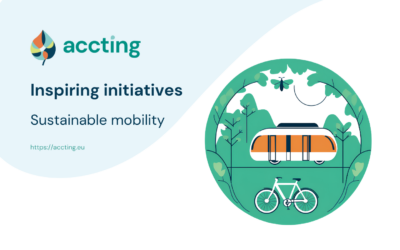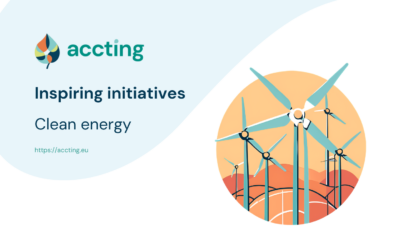Online Webinar
Research Supporting Social Impact – Sustainability through Innovation
Watch the recording!
ACCTING’s research on climate-related topics – ranging from sustainable food and biodiversity to sustainable mobility and energy communities – identified in its Research Agendas a number of key knowledge gaps and research questions. This webinar is part of a series of three webinars highlighting the project’s future research agendas. Click here to discover the other two webinars!
This webinar explores how research can support innovation and social impact for environmental sustainability. It highlights pertinent knowledge gaps and research questions in this regard, with particular focus Inclusive and sustainable food systems, focusing on topics in need of further research like the role of bottom-up initiatives in facilitating sustainable food systems, i.e., how they can effect behavioural change with regard to consuming sustainable food and what factors enable/constrain their efforts.
An external speaker (see below) will offer their reaction to the research agenda on inclusive and sustainable food systems, and share their expert insights. The session is particularly relevant for researchers, civil society actors, and research funding organisations interested in shaping inclusive environmental policies.
External speaker
Dimitra Papaioannidou
Dimitra Papaioannidou is an MSc environmental scientist, a graduate of the University of the Aegean, with postgraduate studies in “Environment and Development” at NTUA. Her work focuses on environmental protection, biodiversity conservation and regenerative development. She has been active in environmental organizations, engaging in environmental education, communication and awareness-raising. She has also explored regenerative lifestyles through permaculture projects addressing biodiversity loss and land use change. Currently, she is Project Manager at Ecomuseum Zagori, where she promotes ecotourism and sustainability through educational programs, cultural trails, field research and community-based heritage conservation, supporting innovative approaches to social and environmental impact.


